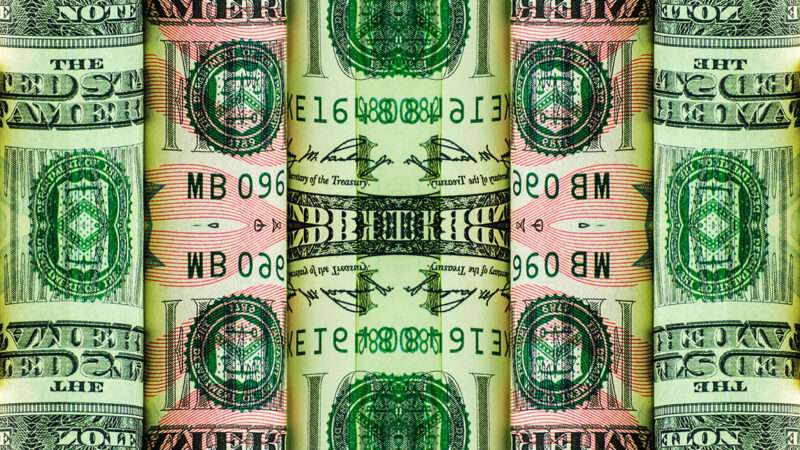
In September 2024, federal officials indicted New York City Mayor Eric Adams on charges including wire fraud and bribery. The indictment alleges that Adams accepted lavish gifts and campaign contributions from the government of Turkey, in exchange for which he rubber-stamped Turkish projects in the city.
As of this writing, Adams has pleaded not guilty and claimed innocence. But the case provides a window into a particularly odious campaign finance reform: public matching funds.
When New Yorkers donate to local candidates, the campaigns are eligible to have the city match those donations. The program is quite generous, providing an 8–1 match for the first $250 of all private donations—meaning for each New Yorker who donates to a campaign, the candidate can bank up to an additional $2,000 from city taxpayers. (Donations from city nonresidents don't qualify.)
Other states and jurisdictions have matching funds programs of their own; New York state, for example, matches donations 6–1 up to the first $250. There is also a federal program that people can opt into by paying $3 on their taxes, though only about 3 percent of taxpayers currently participate.
Adams raised $8.9 million in private donations during his 2021 mayoral campaign and claimed $10.1 million in matching funds. But the indictment claims that he also used straw donors to obtain public matching funds he was not otherwise entitled to, structuring the donations to be eligible for greater reimbursement. According to the indictment, the Brennan Center for Justice noted, "the transactions add up to $26,000 in straw donor contributions, $6,000 of which the campaign later refunded and did not claim for public matching funds. In total, these contributions generated an estimated $24,000 in public matching funds."*
Ironically, matching funds are touted as an anti-corruption measure. "Public financing as a means of eliminating the improper influence of large private contributions furthers a significant governmental interest," the U.S. Supreme Court wrote in Buckley v. Valeo (1976).
"Among the most vital tools to combat the corrupting influence of outsized campaign spending is public funding of elections," claimed a 2011 report from the Brennan Center.
But it's not clear that this has ever been true. "The presumption" that publicly funded campaigns "have been an effective firewall against corrupting influences in the political process has little basis in fact," according to a 2011 study by the Center for Competitive Politics. Instead, such programs "favor corrupt incumbents against upstart challengers" and "facilitat[e] new and creative forms of corruption."
Adams' straw donations, allegedly structured to benefit from matching city funds, would likely fall into the latter category. After all, a $2,000 donation would qualify for $2,000 in matching funds—but secretly split up into eight different $250 donations, it would yield $16,000 in total taxpayer money.
According to a federal indictment, in 2019 state Sen. Brian Benjamin (D–Manhattan) concocted a scheme where he secured a $50,000 grant for a friend's non-profit; in exchange, the friend provided "numerous donations" to Benjamin's campaign for city comptroller, "many of which were fraudulent" and "made in the names of" people who did not authorize them. Benjamin specified that the donations "should be no more than $250" each, so as to qualify for matching funds; in total, Benjamin received $2.1 million in matching funds despite only raising $920,000.
Matching funds are also presented as a means to make elections fair and open. New York State Democratic Committee Chair Jay S. Jacobs helped design the state system and said "the idea behind it was to make the system at least a little bit fairer."
But matching funds inherently involve subsidizing candidates, even those with little chance of winning or gaining majoritarian support. In the 2021 Democratic mayoral primary that Adams won, businessman Andrew Yang ultimately placed fourth. But New York City taxpayers cut Yang's campaign a check for $6.4 million in matching funds—more than one and a half times the total amount he raised from donors. Attorney and activist Maya Wiley, who placed third, received $5.4 million in public matching funds after only raising $2.4 million in private donations.
The federal system has also funded its share of long shots: Perennial candidate Lyndon LaRouche netted $5.5 million in matching funds over five presidential campaigns. John Hagelin ran for president in 2000, proposing to end the war in Kosovo by sending in a fleet of "yogic flyers" who could levitate through meditation; his campaign received $1.75 million.
While the Supreme Court has affirmed their constitutionality, matching funds programs bear a troubling resemblance to compelled speech. After all, private donors saw fit to give Wiley's campaign only $2.4 million, but "fairness" apparently dictates that city taxpayers kick in more than twice that amount. Similarly, despite supporters' lofty rhetoric, matching funds programs apparently don't prevent corruption—the corrupt simply get creative. Governments and voters should rethink matching funds and stop subsidizing political candidates.
*CORRECTION: This article originally misstated the Brennan Center's characterization of the origin of the $26,000 in straw donor contributions.
The post Eric Adams Gamed a New York Campaign Finance Scheme That Was Ripe for Corruption appeared first on Reason.com.



!["[T]he First and Fifth Amendments Require ICE to Provide Information About the Whereabouts of a Detained Person"](https://images.inkl.com/s3/publisher/cover/212/reason-cover.png?w=600)



